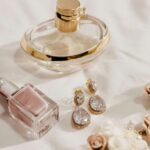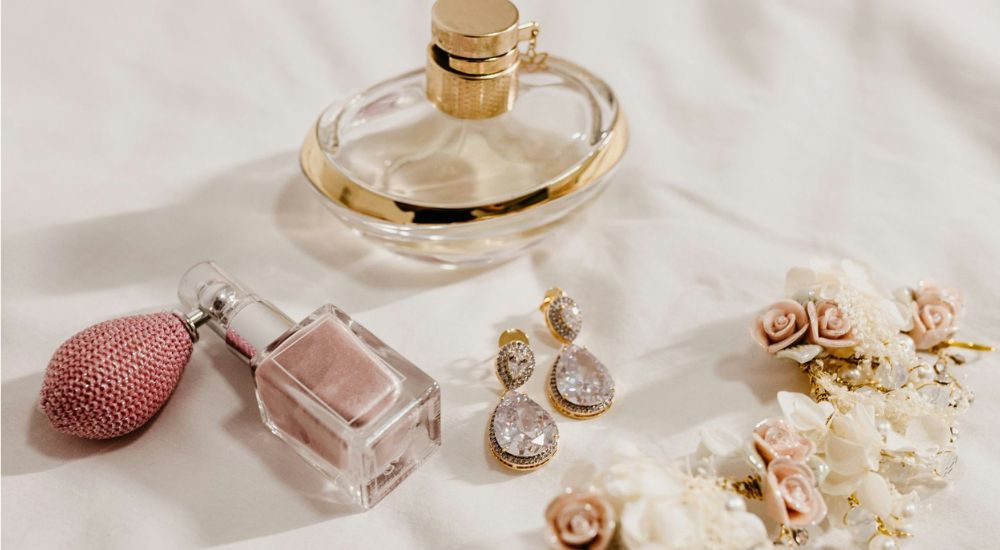There’s something undeniably captivating about a luxury fragrance. It isn’t just a scent—it’s a signature, an identity, a whisper of elegance that follows you throughout the day. For many, wearing a luxury perfume is more than a beauty ritual; it’s an expression of personal style, emotional state, and social presence. The power of scent is rooted in psychology, evoking memories, emotions, and even attraction, and luxury fragrances tap into this with precision and flair.
The History Behind Luxury Perfumes
Fragrance has been treasured by civilizations for thousands of years. In ancient Egypt, perfumes were used for ceremonies and seduction, often reserved for royalty and gods. The Romans and Persians also infused their societies with scented oils and resins. But it was in Renaissance France where perfumery flourished into an art form, ultimately shaping the modern luxury perfume industry. French houses like Guerlain and Chanel set the gold standard with complex formulas and refined craftsmanship, solidifying fragrance as a cultural and luxury staple.
Ingredients that Set Luxury Fragrances Apart
What separates a luxury fragrance from a drugstore option often starts with ingredients. Rare botanicals like Bulgarian rose, Indian oud, or Tahitian vanilla are prized for their depth and authenticity. These high-end materials aren’t just costly—they’re complex, often harvested in small batches and sometimes ethically sourced through rigorous sustainability programs. Synthetic notes have their place, especially for consistency and safety, but luxury perfumers often aim for a blend that offers richness, purity, and layered beauty that cheaper alternatives can’t match.
Craftsmanship and Artistry in Perfumery
Creating a luxury fragrance is akin to composing a symphony. Master perfumers—or “noses”—spend years honing their skills, studying the chemistry of scent and the subtle interplay between top, middle, and base notes. A single fragrance can take months or even years to develop. These experts consider not just how a perfume smells initially, but how it evolves on the skin, how long it lingers, and how it harmonizes with different body chemistries. It’s an art form that demands intuition and innovation.
Emotional and Psychological Impact of Luxury Scents
Scent is the sense most closely tied to memory and emotion. A whiff of a familiar perfume can instantly transport you to a moment, a person, or a place. Luxury fragrances often lean into this phenomenon, designing compositions that evoke deep feelings—comfort, power, nostalgia, or allure. Choosing a high-end scent can even become a part of self-discovery, allowing wearers to express moods, aspirations, or parts of themselves they can’t always put into words.
Packaging and Presentation
Luxury fragrances are as much about the visual experience as the olfactory one. Iconic bottles from brands like Dior, Tom Ford, and Clive Christian are collectible items in their own right, often featuring exquisite glasswork, gold accents, or ornate caps. The packaging isn’t just for show—it tells a story, sets the mood, and adds to the sense of exclusivity and elegance. For many, the unboxing of a luxury scent is a ritual, a moment of indulgence.
Niche vs. Designer Fragrances
The fragrance world has two major players—designer and niche. Designer fragrances are produced by fashion houses and are often more widely available, while niche perfumes are created by brands that focus solely on scent artistry. Niche offerings usually feature bolder, more complex compositions and limited production. They cater to those seeking individuality and uniqueness rather than mass appeal, often becoming cult favorites in the fragrance community.
Gender, Individuality, and the Rise of Unisex Scents
Gone are the days of strictly “for him” or “for her” perfumes. Today’s luxury fragrance embrace the fluidity of scent preferences, offering unisex blends that prioritize aroma over traditional gender norms. This shift encourages self-expression, allowing individuals to choose based on personality and mood rather than marketing. It also reflects a broader societal movement toward inclusivity and personal freedom.
The Role of Luxury Fragrances in Fashion and Lifestyle
Luxury perfumes are no longer just accessories—they’re fashion statements. Just like a designer handbag or couture gown, a luxury scent adds sophistication and confidence. Many celebrities, influencers, and style icons associate themselves with specific fragrances, turning them into lifestyle symbols. Fragrance ads, often cinematic and emotionally driven, further elevate the idea that a bottle of perfume holds more than just scent—it holds status.
The Business of Luxury Perfume
Behind the elegance is a booming industry. Luxury fragrances can range from $100 to thousands per bottle. This pricing is driven by the cost of rare ingredients, meticulous production processes, brand heritage, and exclusivity. Luxury brands also invest heavily in storytelling and marketing, crafting immersive campaigns that promise not just a perfume, but an experience. Owning such a scent becomes a subtle declaration of taste and status.
The Sensory Experience of Wearing a Luxury Fragrance
Luxury scents aren’t just smelled—they’re felt. They unfold in layers: the bright top notes that catch your attention, the rich heart notes that linger for hours, and the deep base notes that stay close to the skin. Sillage (the scent trail), longevity (how long it lasts), and dry-down (its final stage) are all carefully considered. Applying fragrance isn’t just a spray-and-go—techniques like layering, pulsing on warm areas, or spraying on clothes all enhance the experience.
Exploring Iconic Luxury Perfumes
Some perfumes are timeless. Think Chanel No. 5, with its aldehydic brilliance, or Creed Aventus, known for its masculine elegance. Others, like Maison Francis Kurkdjian’s Baccarat Rouge 540, have become modern legends thanks to their unmistakable scent profiles and social media popularity. These icons continue to set benchmarks in quality, artistry, and appeal.
Collecting Luxury Fragrances
Fragrance collecting is a growing hobby. Enthusiasts build scent wardrobes for different seasons, moods, or occasions. Limited edition bottles, discontinued gems, and rare niche finds are treated like treasure. Some collectors even invest in perfume for its resale value, as certain bottles can appreciate over time, especially when kept unopened in pristine condition.
The Future of Luxury Fragrance
The luxury fragrance world is evolving. With growing demand for sustainability, brands are turning to ethical sourcing, refillable packaging, and transparent ingredient lists. Tech is also making its way into perfumery—from AI-assisted blends to virtual scent experiences. But even with innovation, the core remains the same: to craft scents that captivate, comfort, and communicate something meaningful about the wearer.
Conclusion
The allure of luxury fragrance lies in its power to elevate the everyday, to wrap the invisible around us in a way that feels personal, indulgent, and unforgettable. From the complexity of its composition to the story it tells, a luxury scent is more than perfume—it’s an experience, an art, and an identity. Whether you’re a connoisseur or a curious newcomer, exploring the world of high-end fragrance is a journey worth taking—one beautiful bottle at a time.






